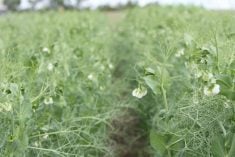Baine Fritzler says it’s no surprise mustard acreage is expected to decline this spring.
It’s all about price.
“Mustard prices are below the cost of production,” he said in an interview from his farm at Govan, Sask.
He said some companies are trying to contract yellow mustard for 22 cents a pound.
“I told all the contractors I came in contact with that in order to get acres they’d have to have prices with a three in front of it,” he said, meaning at least 30 cents a lb.
Read Also

Prairies have variable soil moisture conditions
The dry weather in the west was welcome for preserving grain quality and advancing harvest, but it has resulted in very dry soil moisture conditions.
Statistics Canada’s seeding projections released April 26 indicate that mustard plantings will dip to 455,000 acres in 2010.
That’s a 13 percent decline from last year’s 525,000 acres and below industry expectations of 490,000 to 500,000.
Market watchers say higher mustard prices appear unlikely any time soon.
Sergio Novelli, market analyst with Agriculture Canada, said his department’s next supply and disposition report, due out in early May, will forecast a 2010-11 average mustard price of around 22 cents a lb., down by 7.5 percent from 2009-10.
In his March 10 report, Novelli projected 2010 plantings of 494,000 acres, nine percent greater than the StatsCan number of 455,000.
He said the larger than expected decline reflects low prices and reduced exports, which will result in an increase in carry-out stocks for July 31, 2011.
Based on normal yield trends and lower acreage, production will be down in 2010, which would normally be seen as positive for prices,
“But with a big carry-in from 2009-10, we’ll actually have higher total supplies in 2010-11.”
On the positive side, Novelli expects growers to plant more yellow mustard, which has a stable, robust market in North America, and cut back on brown varieties sold largely in Europe, which has become hesitant about buying from Canada due to concerns over GM contamination.
Fritzler said given the prices being offered, he expects a lot of non-contracted mustard will go into the ground and growers will put it in the bin and wait for a good price.
He added he won’t be cutting back mustard acres on his own farm.
“I’m in a rotation and I’m going to stay there, but I’m not marketing any mustard until I see a better price,” he said.














